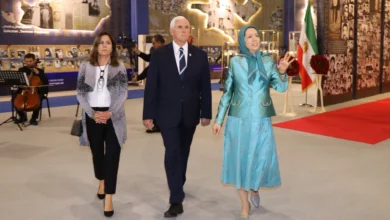Abdel Halim Qandil, coordinator of the Kefaya movement, has said that some people surrounding Mohamed ElBaradei, founder of the National Association for Change (NAC) and potential candidate in Egypt’s 2011 presidential elections, are more dangerous to ElBaradei than the regime itself and may kill the enthusiasm behind his movement.
At a meeting with Kefaya members in Daqahlia, Qandil divided ElBaradei’s supporters into two groups: the first which supports cooperation with Kefaya, and the second which wants to exclude it from the political scene. Qandil said that NAC coordinator Mohamed Ghanim, renowned novelist Alaa Al-Aswany and celebrity talk show host Hamdi Qandil all support ElBaradei’s cooperation with Kefaya and other Egyptian opposition factions.
Qandil added that ElBaradei has yet to give Egypt what was expected of him. “What happens after his movement finishes collecting signatures?” Qandil asked. Kefaya, he said, adopts the idea of a “parallel president” rather than an “alternative president.” “We have reached a stage of political conflict rather than political opposition; we will not compromise but instead put forward a completely different political system that will contest the current regime,” he said.
“We know the regime will not amend the constitution before 2011 so that it can implement its desired scenario. There are parties who want to play a role in this farce,” Qandil continued. “Kefaya, along with some other factions, reject such a role and call for boycotting the elections, as the regime wants neither candidates nor voters.”
Qandil stated that Egypt had 24 political parties, among which only four had any real presence. He described the rest as “cigarette stands.”
Concerning the Muslim Brotherhood, Qandil said, “The Brotherhood is a dinosaur, but it’s still forming its approach.” He added that “the Brotherhood recycles the same stale leadership, which is sometimes fatal to the organization. If it had a different and more daring leadership, it would be able to affect change.”
Translated from the Arabic Edition.




